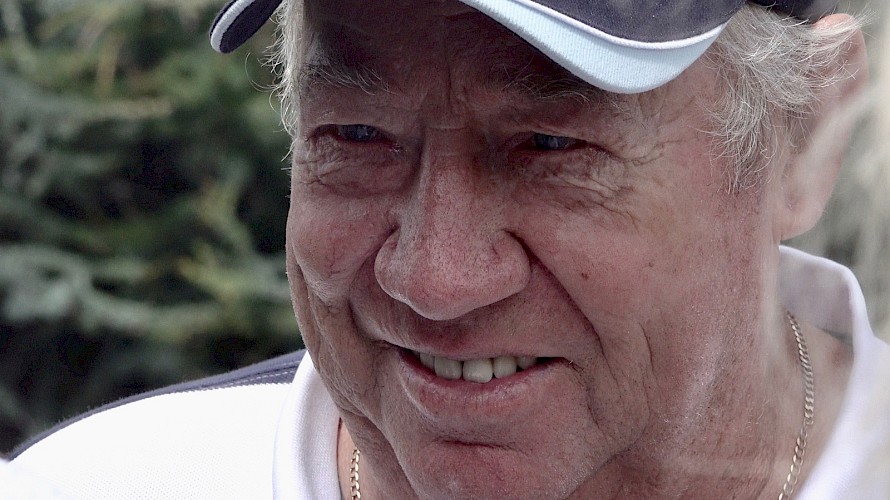
John Street, who owns one of the country’s largest racing operations, is questioning his future in the industry.
Lincoln Farms boss slams RITA, rallies owners, and looks at scaling back NZ business
Lincoln Farms’ boss John Street is preparing to cull his huge racing team here and send more horses to Australia if the Racing Industry Transition Agency can’t give the industry immediate assurances about the future.
In a stinging attack, Street laid the blame for racing’s present technical insolvency on years of inept leadership and criticised the present board for not fulfilling its promise to be open and transparent with participants.
Street, who with wife Lynne owns one of the largest racing operations in the country, with 106 thoroughbreds and standardbreds on his books, lent his full support to New Zealand Trainers’ Association president Tony Pike who led a charge against RITA this week.
“It’s time for all owners to stand up and be united,” says Street.
“It will be a waste of money for anyone to bring horses back into work until we know what stakes we’ll be racing for. Prizemoney was already poor and any reduction would be farcical.”
Street, who was the leading buyer at the latest round of standardbred sales, and has attracted scores of new owners with his special partnerships, says unless things change “we won’t be in the racing business in New Zealand.”
Street and his business manager Ian Middleton are already working on a new model, where young horses would be trained up before being sold or sent to Australia to race.
He is looking over Lincoln Farms’ list of 62 gallopers and considering culling a dozen marginal prospects immediately and identifying others to sell.
Street, like many others, is calling for RITA to release its overdue half yearly report, supposedly delayed after the discovery of a $3.2 million error over bonus bets.
He decries the fact RITA now reportedly is carrying $45 million in loans from the bank, when just 10 years ago it had tens of millions in reserves.
“For too many years now we’ve been led by political appointees with zero experience in racing and no one’s been held to account.”
 Former CEO John Allen trumpeted the new TAB website as a game-changer.$56 million splurge on website
Former CEO John Allen trumpeted the new TAB website as a game-changer.$56 million splurge on website
The last CEO John Allen trumpeted a game-changing new betting platform, which the board borrowed heavily to finance.
At a cost of $38.9 million it mostly benefitted sports betting and was so user unfriendly it turned away punters in droves.
Millions more has been spent since trying to fix and improve the website and, while RITA has never confirmed the figures publicly, the fixed odds platform has ongoing licence costs of $17.3 million a year, according to the New Zealand Racing Board’s Performance and Efficiency Report of September, 2019.
“I can’t remember the industry being warned about that ongoing expense,” says Street.
That means the industry spent more than $56 million on the website in the first 12 months of its operation, with Allen declaring he was confident it would deliver the industry $17 million to $19 million more profit from this year.
Street can’t understand how the TAB has been allowed to become such a monolith, its operating expenses last year more than $142 million, 40.8% of its total income. And a whopping $61.5 million was spent on staff.
Street says it’s obscene that 135 TAB staff earn more than $100,000.
Allen’s salary last year was nearly $700,000, $230,000 more than Prime Minister Jacinda Ardern’s $471,000.
And 10 of the TAB’s senior managers were on $250,000 or more, earning the same, or more, than government ministers.
Instead of simply asking its 595 staff to take holidays during the COVID-19 restrictions, RITA had a duty to reduce its numbers like most other businesses.
Street says every aspect of the business needs to be trimmed, including bodies like the Racing Integrity Unit whose running cost has ballooned in the last six years from $5.4 million a year to $6.7 million.
Owners, meanwhile, continued to get shafted, carrying the burden of paying expensive training fees and racing for peanuts.
More news in Gallops
Tributes pour in for talented apprentice Ngakau Hailey after tragic road accident
Billy primed to give young Jack an early career win at Cambridge on Wednesday
Money comes for Platinum Attack with the promise of better footing at Trentham
Lisa: It’s a hot field but Platinum Attack’s not out of it - and the $23 odds are very tasty
Our runners this week: How our trainer rates them

Stephen’s comments
Thursday at Cambridge synthetic
Race 6:Billy Lincoln
2.25pm
“He’ll jump from seven, put himself right up on the speed, probably lead, and be a very nice each-way chance with a 4kg claim.”


